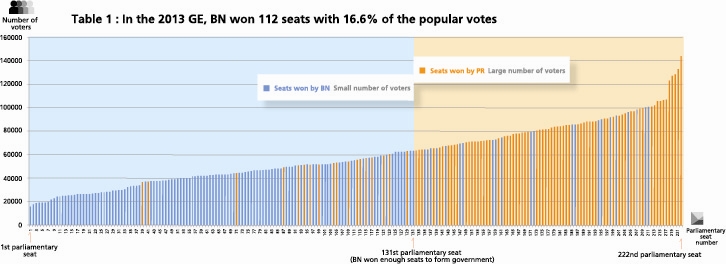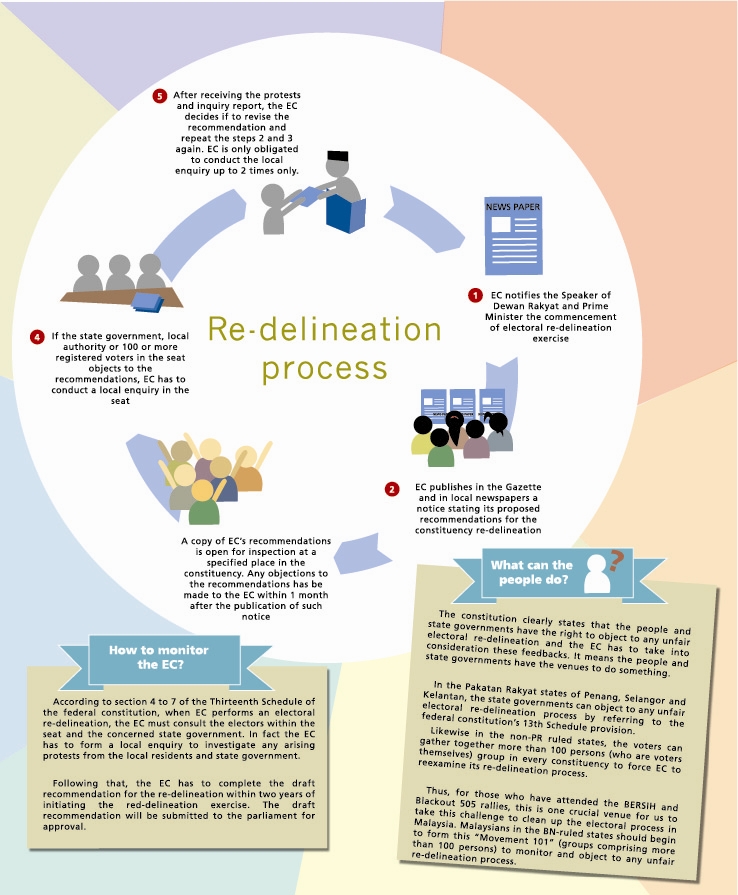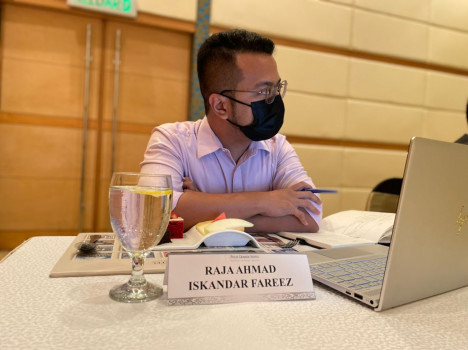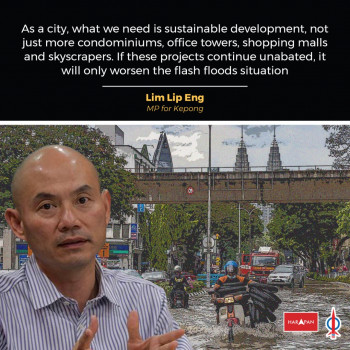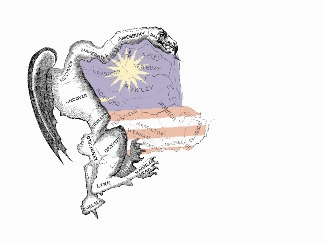 In the 2013 general elections (GE), there was a record turnout of voting throughout the country. However, much to the chagrin of those hoping to see the end of Barisan Nasional’s rule that has been sustained through money politics and dubious voters, it did not materialise. Even though Pakatan Rakyat managed to win 51 percent of the popular votes it did not translate to 51 percent of the seats it won, snuffing out the hopes of a change in government. This was the first election since the 1969 GE that BN (then Alliance) had garnered less than 50 percent of the popular votes while maintaining power.
In the 2013 general elections (GE), there was a record turnout of voting throughout the country. However, much to the chagrin of those hoping to see the end of Barisan Nasional’s rule that has been sustained through money politics and dubious voters, it did not materialise. Even though Pakatan Rakyat managed to win 51 percent of the popular votes it did not translate to 51 percent of the seats it won, snuffing out the hopes of a change in government. This was the first election since the 1969 GE that BN (then Alliance) had garnered less than 50 percent of the popular votes while maintaining power.
The main culprit for this electoral farce was gerrymandering, where the number of votes received did not translate to the number of seats won. Electoral area re-delineation is the responsibility of the Election Commission (EC). However 51 percent of the voters who came out to vote have already shown their distrust of EC’s impartiality in electoral re-delineation, especially since after the indelible ink fiasco that marred the 13th GE. Report by Lam Choong Wah (executive editor, Chinese Rocket). Translated by T.K. Tan
Gerrymandering – some facts
With the aid of gerrymandering, in seats with less than 60,000 voters BN managed to win handsomely in the 2013 GE, bagging 105 parliamentary seats to PR’s 16. In the next category (seats with 60,000-64,000 voters), BN won seven seats, enabling it to win the magical number of 112 seats that are needed to form the federal government.
A point to note, in these 112 seats BN won 2,189,559 votes, which is 16.5 percent of the total 13,268,200 votes cast nationwide. In other words, with less than one-fifth of the votes BN had won the GE. It is of paramount importance for Malaysia to implement a fair and representative electoral re-delineation so as to realise the principle of one-man, one vote throughout the land.
Electoral re-delineation is done in two ways. One is through redrawing of electoral boundaries of the existing seats and adding or reducing the total number of seats; the second method is merely redrawing the electoral boundaries of the seats. The first method requires the parliament to amend the federal constitution while the latter doesn’t need any constitutional amendment which requires two-third vote to effect it, only a simple majority vote to do so.
Generally the public at large don’t feel that they can influence the electoral re-delineation exercise as many people believed that they can’t participate in the process of electoral re-delineation conducted by the EC. Many have resigned themselves to accept it or passively urge the EC to be fair and impartial in its conduct. The fact is the people and even state governments can play an active role in the electoral re-delineation process, to monitor the EC to act impartially.
How to monitor the EC?
According to section 4 to 7 of the Thirteenth Schedule of the federal constitution, when EC performs an electoral re-delineation, the EC must consult the electors within the seat and the concerned state government. In fact the EC has to form a local enquiry to investigate any arising protests from the local residents and state government.
Following that, the EC has to complete the draft recommendation for the re-delineation within two years of initiating the red-delineation exercise. The draft recommendation will be submitted to the parliament for approval.
What can the people do?
The constitution clearly states that the people and state governments have the right to object to any unfair electoral re-delineation and the EC has to take into consideration these feedbacks. It means the people and state governments have the venues to do something.
In the Pakatan Rakyat states of Penang, Selangor and Kelantan, the state governments can object to any unfair electoral re-delineation process by referring to the federal constitution’s 13th Schedule provision.
Likewise in the non-PR ruled states, the voters can gather together more than 100 persons (who are voters themselves) group in every constituency to force EC to reexamine its re-delineation process.
Thus, for those who have attended the BERSIH and Blackout 505 rallies, this is one crucial venue for us to take this challenge to clean up the electoral process in Malaysia. Malaysians in the BN-ruled states should begin to form this “Movement 101” (groups comprising more than 100 persons) to monitor and object to any unfair re-delineation process.

